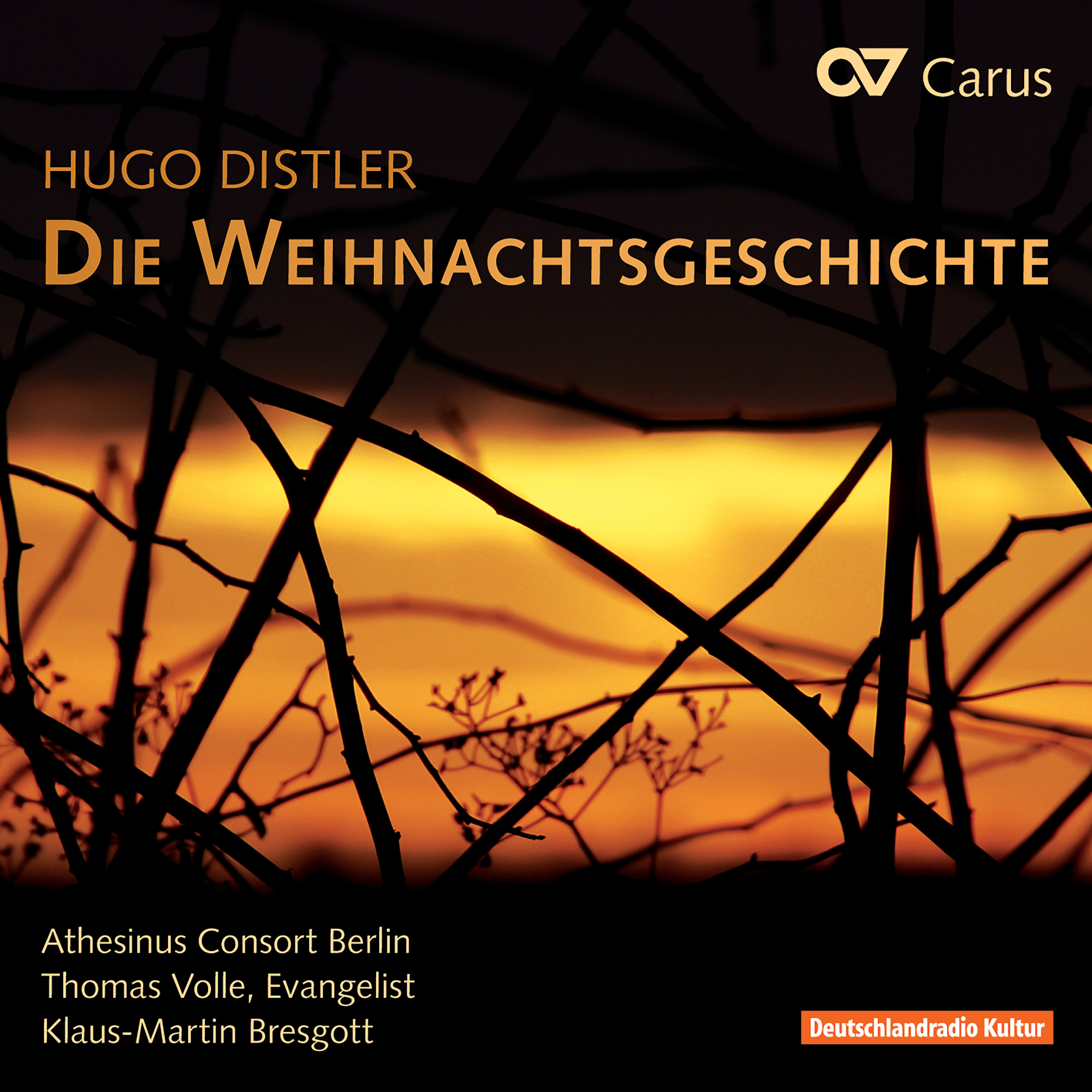A Christmas Original
What can one expect from a composer who lived from 1908-1942?
Distler's originality doesn't come from his own time period, but rather the time period which influences his music. The Baroque, especially the music of Heinrich Schütz, informs Distler's musical style in these choral works.
All of the music on this recording is completely a cappella, set in an unusually tonal manner, even if the harmonies are distinctly of the 20th Century. Distler's vocal textures bandy between German chorale-like homophony opposite the independent polyphony of the Baroque. Harmonies exist in a modal landscape, although the lightest of dissonances exist ala the Renaissance.
The six motets are the most appealing, ones which really prepare the listener for Distler's early music tendencies. The composer is very free with tempo changes, letting the text determine the pace rather than merely setting a text to music. The final motet includes the tune In dulci jubilo (Joseph Dearest, Joseph Mine), the only carol familiar to me from these shorter works.
The 40-minute Die Weihnachtsgeschichte (Christmas Story) is the major work. This work is famous for its seven chorale variations based upon Es ist ein Ros entsprungen (Lo, How a Rose e'er Blooming), which are sprinkled throughout the story surrounding the birth of Christ. The plot is told in a very Baroque fashion, through a chanting tenor Evangelist, another trait of Schütz and Bach. The chorus pipes in with the chorale variations mentioned earlier, as well as joining in moments to highlight groups of characters.
The music from Distler is at its most modern in this work, with notable 20th Century harmony, nothing particularly tough sounding, though. Most telling must be the independence of choral parts and the free, rhythmic polyphony the composer sets to these words. It is beautiful to listen to, yet I imagine it would be really difficult music to put together.
German conductor Klaus-Martin Bresgott chooses to make the Introduction and Finale of the cantata-oratorio mirror each other, but also includes the alternate finale as a separate motet, Also hat Gott die Welt geliebet. The solo voices come from within the choir, and they are all able singers, even if the main evangelist, Thomas Volle, has a rather tight, inconsistent vibrato.
An odd inclusion is a poem written by Hugo Distler, set by Bresgott in what the recording calls a text-collage. It is completely spoken (the whole recording is sung in German), and there are modern whispers and goings-ons by the chorus in the background. It is under 3 minutes, but strange nonetheless.
The Athesinus Consort of Berlin is a mixed-adult, 12-singer ensemble. It wouldn't surprise me at all to know these singers usually performed music of the Renaissance and Baroque. They have a beautiful tone, which has the lightest of vibrato when applied, but thankfully they are not stark nor colorless. I am particularly enchanted by their singing of these motets, and if the magic doesn't reach me in the largest work, I don't think that is due to these wonderful performers; the music just goes on too long.
For not knowing this work previously, there are quite a few recording of Die Weihnachtsgeschichte available. Most easy to find is one from the famous St. Thomas Choir of Leipzig; I only avoided that performance due to its very short, sub-40-minute runtime. The other available recordings have sub-50-minute total runtimes also, so this well-filled recording on Carus was an easy pick.
What an original discovery this music is! I might not be completely drawn in by Distler's Evangelist cantata, but what beautiful and interesting music he creates, with some creative motets for Advent and Christmas. Certainly, if you enjoy lovely sounding a cappella choral music, this will be a must have.
Listen on YouTube
Works
Die Weihnachtsgeschichte (42.51)
O Heiland, reiss die Himmel auf (5.10)
Also hat Gott die Welt geliebet (4.43)
Die Nacht wird licht (5.17)
Heut ist uns ein Kindlein geborn(3.05)
Lobt Gott, ihr Christen alle gleich (3.43)
Singet frisch und wohlgemut (7.50)
Die Stern (2.57)
Performers
Athesinus Consort Berlin
Klaus-Martin Bresgott, conductor
Label: Carus
Year: 2015
Total Timing: 75.54
While I am not wild about the main feast here, Distler's music is worth investigating.
Those who enjoy easy-going, a cappella choral music, should enjoy this album. Its Neo-Baroque elements only add to its intrigue.
Carus has employed secure singing from the Athesinus Consort, an early-music ensemble I have not come in contact with previously.


Comments
Post a Comment